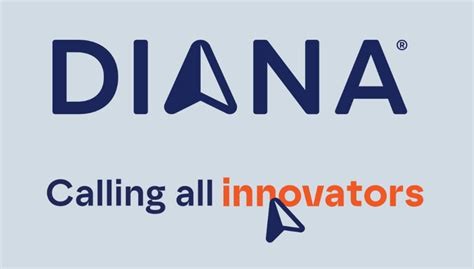Eurostars Call 9 Opens July 2025
Funding for Internationally Collaborating Innovative SMEs
The Eurostars programme, jointly managed by EUREKA and the European Commission, is one of Europe’s most SME-friendly funding schemes for collaborative R&D. It is designed to support R&D-performing SMEs and their partners in developing innovative, market-ready products, services, or processes through international collaboration. The next funding opportunity—Eurostars 3, Call 9—opens on 4 July 2025 and will close on 4 September 2025 at 14:00 CEST.
This call is part of the Horizon Europe Partnership on Innovative SMEs and is aimed at small consortia of organisations from different participating countries. Its objective is clear: to support innovative SMEs in executing transnational R&D projects with high market potential and commercial ambition.
Key Dates and Timeline
Eurostars Call 9 provides a two-month application window, with a streamlined evaluation and decision-making process.
Important dates include:
- Call opens: 4th July 2025
- Deadline for submission: 4th September 2025 at 14:00 (CEST)
- Evaluation results: Expected by end of November or early December 2025
- Project start dates: Typically within 6 months of submission, subject to national processes
Applicants are advised to begin early and consult their national funding bodies to align with country-specific rules and requirements.
Who Can Apply?
Eurostars is open to SMEs leading international R&D collaborations, with a particular focus on innovation and commercialisation. Projects must be led by an R&D-performing SME and involve partners from at least two participating Eurostars countries.
Minimum eligibility criteria:
- The project consortium must include at least two independent entities from two different Eurostars countries (UK is included).
- The lead applicant must be an innovative SME from a Eurostars country.
- SMEs must carry at least 50% of the total project costs (excluding subcontracting).
- No participant or country can contribute more than 70% of the total budget.
- Projects must have a maximum duration of 36 months.
- Results should be targeted for civil applications only.
Eurostars currently includes 37 countries, including EU member states, the UK, Norway, Turkey, Israel, Switzerland, and several others. The programme’s flexibility allows SMEs to partner with universities, large companies, and research centres, if the SME remains the project lead.
Funding Rules and Budget
Funding through Eurostars is provided on a decentralised basis, meaning that each participating country funds its own organisations according to national rules. This means that grant rates, eligible costs, and submission procedures can vary significantly between countries.
Typical funding characteristics:
- SMEs can receive between 40–80% of eligible costs, depending on national rules (60% in the UK).
- Universities and research institutes are often eligible for funding, but this varies (not eligible in the UK).
- Maximum grant sizes also vary; some countries cap funding per partner or per project (€600,000 total cost maximum for UK SMEs).
Applicants must contact their national funding agency to confirm their eligibility and understand any specific requirements before submitting.
Application and Evaluation Process
The Eurostars application process is fully online via the Eureka Project Management Platform. The system opens on 4th July 2025, and proposals must be submitted by 4th September 2025 at 14:00 CEST.
The submission and evaluation process includes:
- Online application: Including technical annex, budget, partner declarations, and Gantt chart.
- Eligibility checks: Ensuring all criteria are met, conducted immediately after the deadline.
- Technical assessment: Carried out by two independent international experts.
- Centralised evaluation: Projects are ranked by an Independent Evaluation Panel.
- Ethics review: Conducted for projects involving sensitive data, human subjects, or ethical risks.
- Funding decisions: Made by national funding bodies, typically 6–8 weeks after the ranking list is finalised.
A clear strength of Eurostars is its centralised evaluation with decentralised funding, enabling high-quality cross-border projects while preserving national control over budgets.
Why Apply: Key Benefits of Eurostars
Eurostars stands out for its accessibility, flexibility, and proven impact on SME growth. It is particularly attractive for SMEs that are too small for direct EU programmes like EIC Accelerator or Horizon Europe collaborative calls, yet still need substantial support to scale innovation internationally.
Top reasons to apply:
- High success rate: ~29%, significantly higher than most EU R&D schemes.
- Bottom-up approach: No fixed themes - applicants define their own project scope.
- Quick feedback: Results delivered within 3 months of submission.
- Flexible funding: Each partner receives funds through its own national agency.
- Strong impact: On average, participating SMEs increase their turnover by 15% and enter new international markets.
- Small consortia allowed: Ideal for agile, focused R&D collaborations (2–4 partners).
Preparing a Competitive Application
To boost your chances of success, preparation is key. Applicants are encouraged to attend webinars and national information sessions, some of which will take place in early July 2025.
Tips for success:
- Engage your national contact point early to confirm eligibility.
- Build a balanced, complementary consortium with clear roles and shared risk.
- Ensure your project has a clear route to market, including a commercialisation plan.
- Emphasise your project’s technical excellence, commercial potential, and societal impact.
- Allow time for internal review, document collection, and Gantt chart planning.
- Use professional support services where necessary, several consultancies across Europe specialise in Eurostars bid writing.
Next Steps: What Should You Do Now?
If you’re considering applying to Eurostars Call 9, here’s what you should do next:
- Check eligibility with your national funding body
- Identify potential partners in other Eurostars countries
- Mark your calendar for the 4th July 2025 opening
- Start drafting your proposal early
- Attend a webinar for application tips and evaluation insights
- Register on the Eurostars portal: www.myeurekaproject.org
For a free consultation to discuss your project in more detail, contact RedKnight today.
Unlocking Agri-Tech Innovation in Wales
New Innovate UK Launchpad Competition Offers £2.7M Funding Opportunity
Innovate UK has announced a new funding competition designed to boost the agri-tech and food technology sectors across Mid and North Wales. Launching under the Innovate UK Launchpad programme, this targeted opportunity will provide up to £2.7 million in grant funding to collaborative R&D projects that are rooted in the region but have the ambition to scale nationally or internationally. The competition opens for applications on 30th June 2025 and closes at 11:00 am on 20th August 2025.
This Launchpad competition is part of a broader government strategy to strengthen regional innovation clusters by building place-based capacity and encouraging collaboration between businesses, research centres, and public sector bodies. Mid and North Wales have been identified as areas of strategic potential, with rich natural resources, strong agricultural heritage, and a growing network of innovation hubs such as AberInnovation, M-SParc, Ambition North Wales, and Growing Mid Wales. Innovate UK aims to catalyse activity within this cluster by funding projects that can solve local challenges and contribute to the UK’s net zero, food security, and rural growth agendas.
To be eligible, projects must be led by a UK-registered business of any size and must include at least one UK-registered micro, small or medium-sized enterprise (SME). Importantly, only collaborative applications will be accepted, individual companies applying alone will not be eligible. The total grant funding requested must be between £150,000 and £500,000, and all project activities must be carried out within the UK. However, applicants must clearly demonstrate how the work will contribute to the Mid and North Wales cluster during the funded project and in the longer term. Proposals will be assessed on their technical merit, as well as on their ability to drive local impact, support regional growth, and create lasting innovation infrastructure.
The competition is open to a wide range of innovations in agriculture and food technology. This includes, but is not limited to, smart farming solutions, digital agriculture platforms, crop monitoring and optimisation technologies, alternative proteins, food waste reduction systems, and packaging innovations. Projects must be relevant to the needs of Mid and North Wales and contribute meaningfully to the local economy and innovation ecosystem. However, they should also show scalability, either by having the potential to be adopted across the UK or by being export-ready for international markets. This dual emphasis on local embedding and global outlook is a core pillar of the Launchpad approach.
Crucially, Innovate UK wants to see projects that will leave a lasting legacy in the region. Successful applicants must articulate how they will strengthen the Mid and North Wales cluster beyond the life of the grant. This might include creating new partnerships with local organisations, setting up new facilities or capabilities, enhancing regional supply chains, or developing specialist skills within the local workforce. Proposals that do not convincingly demonstrate ongoing engagement with the cluster are unlikely to succeed, even if they are strong on technical innovation.
Applicants will be evaluated across several criteria, including the strength of the innovation, market demand, potential for commercialisation, and value for money. Equally important will be the team’s capacity to deliver and the clarity of the project plan. The assessment process will also consider how well the project aligns with local priorities, and how it complements existing initiatives in the region. Innovate UK is seeking a balanced portfolio of projects that will collectively enhance the economic and innovation potential of Mid and North Wales.
While this is a UK-wide competition, it is deeply rooted in Welsh regional priorities. Local authorities and economic development bodies are working closely with Innovate UK to support applicants, and potential bidders are encouraged to engage early with organisations such as AberInnovation, M-SParc, Ambition North Wales, and Growing Mid Wales. These regional cluster anchors can offer valuable insights, introductions to collaborators, and guidance on aligning proposals with local strategic goals. A webinar briefing will also be held shortly after the competition opens to provide more detail on the application process, scope, and assessment criteria.
The timing of this competition is significant. The UK government is investing heavily in food system resilience, climate-smart agriculture, and place-based innovation, and this Launchpad initiative is part of a coordinated push to unlock economic growth in rural and semi-rural areas. It also complements the recent £50 million boost to sustainable food production grants announced in May 2025. For innovators working on next-generation agricultural technologies, automation, or food sustainability solutions, the Mid and North Wales Launchpad offers an unparalleled opportunity to access funding, build regional networks, and accelerate impact.
Applying to the competition requires careful preparation. Prospective applicants should begin by forming a strong consortium that includes all required partners, particularly at least one SME. They should then clearly define how their project will support the Mid and North Wales cluster and ensure that their innovation aligns with the regional agri-tech and food tech priorities. The proposal should include a well-articulated delivery plan, commercialisation strategy, and longer-term vision for sustaining innovation in the region.
RedKnight was successful in the previous Agri-tech Launchpad, and as a Wales-based organisation, is eager to support more Welsh organisations in accessing this funding. For a free consultation, contact RedKnight today.
UK Agri-Tech SMEs Target Saudi Growth
UK SMEs Tap into Saudi Arabia’s Agri Tech Opportunity via Innovate UK’s GBIP
As agri tech innovation reshapes modern farming across the globe, Innovate UK is inviting UK-based small and medium enterprises (SMEs) to compete for a coveted spot in its Global Business Innovation Programme (GBIP): Agri Tech, Saudi Arabia. Registration opened on 16th June 2025 and closes on 27th July 2025, offering up to 15 ambitious businesses an exceptional opportunity to accelerate their international expansion.
Who Should Apply?
Eligibility is open to UK-based, innovation-led companies with fewer than 250 employees. Each application must be led by a senior decision-maker, such as a CEO or founder, who is prepared to fully commit to all three phases of the programme.
Importantly, participants must attend a two-day UK-based ‘Get ready’ workshop, a week-long innovation visit to Saudi Arabia, and a follow-up ‘Exploit the opportunity’ workshop post-visit. Businesses who previously participated in a GBIP for the same market/sector must demonstrate measurable impact from prior rounds and outline how this particular programme offers fresh value.
Programme Timeline & Structure
Innovate UK has structured the programme within a 9–12 month window, starting with preparatory activity and culminating in strategy planning:
• Get ready workshop: 15th–16th September 2025 (tbc)
• On-site innovation visit, including a stop at the Saudi Agriculture Conference in Riyadh: 17th-24th October 2025
• Exploit the opportunity workshop: 13 January 2026 (tbc).
Additionally, a global insight and briefing webinar is scheduled for 3rd July 2025, providing potential applicants with essential guidance on eligibility, evaluation, and the Saudi agri tech ecosystem.
What’s Funded?
Innovate UK will cover flights, accommodation, in-market travel, and conference fees for one senior representative per company. While most costs are covered, a refundable commitment fee of £1,000 is required upon acceptance, refunded upon completion of all programme phases and deliverables.
Why Saudi Arabia?
Under its Vision 2030 plan, Saudi Arabia is rapidly modernising its economy, with agriculture and food security now taking centre stage. Despite the harsh desert environment and scarce freshwater resources, agriculture contributes around 4.3% to KSA’s non oil GDP, employing over 350,000 people.
Recent UK–KSA developments, notably the March 2024 science and technology MoU, have set the stage for enhanced R&D collaboration, aligned with critical needs in food, water, clean energy. The KSA government is investing in:
• Controlled-environment agriculture (CEA)
• Precision breeding and agriculture
• Precision livestock technologies
• Aquaculture
• Food waste valorisation and circular economy solutions.
These focal areas constitute the thematic pillars for the GBIP cohort.
Scope & Focus Areas
Innovate UK is seeking innovative solutions across several cutting-edge categories:
• Aquaculture: including health diagnostics and AI-enhanced feeding systems
• CEA & precision agriculture: robotics, sensor networks, drip irrigation, integrated pest management
• Livestock tech: health monitoring, fertility management in dairy and poultry
• Circular-economy systems: turning agricultural or food waste into high-value products.
These diverse themes reflect the breadth of KSA's ambitions and provide rich potential for UK SMEs to add value.
What Participants Gain
Accepted businesses can expect to unlock multifaceted benefits through the GBIP:
1. Market knowledge & SME profiling: DNAs from in-market visits and networking.
2. High-level introductions: tailored connections to government, R&D, and industry leaders.
3. Partnership opportunities: enabling joint R&D projects and bi-lateral funding calls.
4. Value proposition refinement: through expert coaching and peer exchange.
5. Pipeline building: with incubation support via a dedicated Innovation and Growth Specialist.
Combine these with direct exposure at the Saudi Agriculture Conference, and participants are well-positioned to forge lasting commercial and research partnerships.
€100k Dual-Use Tech Challenge Across 10 Critical Domains
On 2nd June 2025, NATO’s Defence Innovation Accelerator for the North Atlantic (DIANA) unveiled an ambitious set of ten new technology challenges, marking a major expansion of its mission to identify and fast track dual use deep tech across the Alliance. Running until 12:00 UTC on 11th July 2025, this competition offers €100,000 in funding and access to a six month accelerator starting January 2026, with top performers eligible for up to an additional €300,000 in the next programme phase.
What is DIANA?
Established in June 2021 and operational since June 2023, DIANA is NATO’s first innovation accelerator body dedicated to dual use deep technologies, solutions that bridge civilian and military applications. Operating out of regional locations in London, Tallinn, and Halifax, it harnesses a continent wide network of 200+ accelerator sites and test facilities across Europe and North America.
Managed by Professor Deeph Chana, DIANA runs a competitive, multi phase model: public challenge calls → rapid non dilutive grants → a structured Phase 1 accelerator → rigorous down select to Phase 2 → real world testing, adaptation, and adoption by NATO and member states.
It also feeds promising technologies into the €1 billion NATO Innovation Fund, launched in June 2022 to scale dual use deep tech innovation.
The 2025 Challenges
The ten focus areas reflect NATO’s evolving defence and resilience needs:
1. Energy & Power
2. Advanced Communication Technologies
3. Contested Electromagnetic Environments
4. Human Resilience & Biotechnologies
5. Critical Infrastructure & Logistics
6. Operations in Extreme Environments
7. Maritime Operations
8. Resilient Space Operations
9. Autonomy & Unmanned Systems
10. Data Assisted Decision Making
Each challenge invites innovators to address pressing capability gaps, ranging from AI enabled decision tools to resilient comms systems and advanced biotech for personnel.
Support and Selection Process
• Phase 1: €100,000 in contractual funding, six month accelerator, access to test centres, mentor network, and industry end user engagement.
• Phase 2 (down selected): Additional funding, deeper integration, field testing, and potential procurement opportunities.
Since its pilot in 2023, DIANA has supported:
• 44 startups across three challenges (energy resilience, sensing & surveillance, secure information sharing), selected from 1,300+ proposals.
• Over 70 companies awarded for the 2025 accelerator, spread across 20 NATO countries, covering similar deep tech domains.
Past participants include innovators in quantum cryptography, secure messaging, and cyber resilience, such as Hushmesh, Goldilock, and LevelQuantum, which received €100,000 and access to NATO test labs.
Spotlight: The Arctic Innovation Mobilisation
In May 2025, DIANA ran a focused Arctic Innovation Mobilisation (AIM) competition in collaboration with Norway, targeting solutions for extreme cold and remote conditions. Five winners, including US, Norwegian, and Canadian firms, received up to €50,000 each for innovations spanning PNT resilience, power systems, UAS charging, and avalanche safety. The initiative emphasises DIANA’s agility in responding to regional and environmental security demands.
Why It Matters
DIANA represents a significant shift in NATO's approach:
• Breaking the ‘washing machine’ procurement model by focusing on effect based challenges, not preconceived solutions.
• Accelerating impact: swift funding, end user feedback loops, and streamlined adoption pathways.
• Embracing dual use innovation, bridging civilian technology with military needs.
• Leveraging collective scale: regionally rich, multi national, resourced innovation hubs.
These new 2025 challenges reveal NATO’s readiness to tackle next generation threats, whether cyber electromagnetic, space based, environmental, or biologically oriented, through tech-powered resilience.
How to Participate
• Innovators (startups, SMEs, researchers) have until 12:00 UTC, 11th July 2025 to apply via the DIANA website.
• Proposals must clearly address one of the ten challenge areas with strong evidence of novelty, feasibility, dual use potential, and defence alignment.
• No equity is taken; grant-based support ensures innovators retain ownership.
What to Watch For
• Announcement of the 2026 cohort, expected early 2026.
• Success stories from Phase 1 projects that transition to practical adoption.
• NATO’s Innovation Fund investments in standout DIANA participants.
• Continued regional initiatives like AIM, reflecting NATO’s flexibility.
Interested in learning more or applying? Contact RedKnight today.
UK Unveils £86 Billion Boost to Science & Tech
The UK government has pledged a transformative £86 billion to bolster science, research, and technology over the next four years, reaching £22.5 billion annually by 2029/30. The announcement, part of a broader “Plan for Change,” was made ahead of the 2025 Spending Review and represents a major leap toward establishing the UK as a global leader in innovation.
Key highlights:
• £86 billion to fund everything from new drug treatments and longer lasting batteries to new AI breakthroughs to generate billions for the UK economy and drive the UK government’s “Plan for Change”.
• includes up to £500 million for regions across the UK, with local leaders part of decision making.
• announcement comes ahead of the Spending Review, where the Chancellor will make clear that investing in Britain’s renewal will deliver change for working people and their communities.
Key Objectives
Fuel economic growth: Every £1 of R&D spending is expected to generate up to £7 in economic benefits, stimulate private investment, and support around 3 million jobs.
Boost regional innovation: A dedicated £500 million Local Innovation Partnerships Fund will empower local leaders to direct investment toward their region’s strengths.
The government’s regional focus acknowledges that innovation is strongest when aligned with local ecosystems with targeted investment across sectors such as:
• Liverpool will leverage its life-sciences hub to accelerate new drug development.
• South Wales - home to the UK’s largest semiconductor cluster, will receive funding to develop chips for mobile devices and electric vehicles.
• Northern Ireland stands to gain through enhanced defence technology capabilities.
Each of the seven Mayoral Strategic Authorities in England, including Greater Manchester, West Midlands, South Yorkshire, West Yorkshire, Liverpool City Region, Northeast, and Greater London will receive at least £30 million. Devolved governments in Scotland, Wales, and Northern Ireland, as well as other UK areas, may compete for additional funds.
Spotlight on Local Innovation Partnerships
This funding builds on successful pilots like Greater Manchester’s AI-powered diagnostic accelerator, which speeds up and reduces the cost of detecting liver, heart, and lung disease, and the West Midlands’ Moonbility platform, using AI to model transport disruption and assist passengers. The Local Innovation Partnerships Fund marks an enduring push toward democratising access to R&D.
Chancellor Rachel Reeves described the initiative as critical to “investing in Britain’s renewal to create jobs, protect our security against foreign threats, and make working families better off”. Science and Technology Secretary, Peter Kyle, emphasised that R&D underpins breakthroughs, from longer-living technologies to climate-fighting innovations, and aims to enhance quality of life throughout the UK.
Policy Alignment & Spending Review Context
The infusion is part of a larger Spending Review package: the Chancellor will unveil £113 billion in new capital investment in housing, transport, and energy, following her modifications to debt rules. These investments align with the government’s shift to empower regional spending via reforms to the Treasury’s “Green Book,” facilitating more strategic, place-based investment.
Universities UK welcomed the announcement. CEO Vivienne Stern praised the plan as “a smart investment” with the potential to spur long‑term growth nationwide:
“The UK has a real opportunity to sow the seeds of long-term growth… from Swansea to Aberdeen, from Barrow to Plymouth.”
Mayor Richard Parker of the West Midlands affirmed the plan would help regions “turn our potential into progress” by supporting clean energy, life sciences, AI, and manufacturing. Northeast Mayor Kim McGuinness said the investment would bolster established industries like automotive and green energy, while enabling growth in space and AI sectors.
Academic and think‑tank concerns highlight the need for an integrated, long-term strategy. Critics argue the UK must address skills development, enterprise diffusion, international recruitment, and commercialisation pathways to maximise returns.
UK in the Global R&D Landscape
With annual R&D spending to reach approximately £22.5 billion, up from present levels, the UK is narrowing the gap with global peers. The NIHR, France’s CNRS, Germany’s DFG, and the US’s NIH are all drawing international talent and investment. In contrast, this commitment gives the UK a competitive edge, reinforcing its position as a leading location for innovation. Broader impacts include:
1. Economic Growth & Jobs: Widespread benefits across healthcare, manufacturing, transport, energy, and digital sectors.
2. Improved UK Resilience: By decentralising innovation and supporting national security needs.
3. R&D Ecosystem Strengthening: Boosting universities, research councils, SMEs, and large-scale industry collaborations.
4. Commercial Translation: Sustained success depends on converting research into business ventures and products.
5. Inclusive Innovation: Gaining equitable access for underserved regions and diverse talent will be critical.
Looking Ahead
The £86 billion R&D funding represents a historic investment in UK science, technology, and regional empowerment. It promises to fuel job creation, advance innovation, and reinforce national resilience. But unlocking its full potential will require nurturing collaboration across government, academia, and industry, backed by efficient implementation and long-term strategic planning.
Success will hinge on:
• Effective regional partnerships.
• Stronger infrastructure and talent pipelines.
• Incentives for commercialisation.
• Inclusive access across the UK.
With Chancellor Reeves’ Spending Review due today (10th June 2025) and the “Green Book” reforms taking shape, the world will watch: this investment is more than a funding surge, it’s a bold declaration of the UK’s future in global science and innovation.
Innovate UK’s Funding Slowdown in 2025
As we approach the midpoint of 2025, the UK’s innovation ecosystem finds itself in a period of notable transition, and has done for a few months now! Innovate UK, the nation's principal innovation agency, has launched significantly fewer funding competitions this year compared to previous years. This marked reduction has raised concerns across the innovation landscape, prompting many to question what is driving the slowdown.
From my perspective as Director of RedKnight Consultancy Ltd, the picture is more complex than any one factor. While headline-grabbing changes, such as the pausing of the Smart Grant programme have attracted attention, the root cause of the slowdown is likely broader and more political in nature. In this article I examine the intersecting structural, strategic and political developments shaping the 2025 funding landscape, and offer guidance on what innovators should expect next.
Leadership Changes and Strategic Realignment
One of the clearest changes to Innovate UK this year has been the appointment of Tom Adeyoola as its new Executive Chair, succeeding interim chair Dr. Stella Peace. Adeyoola, an experienced tech entrepreneur and founder of Metail, brings fresh thinking to Innovate UK at a time of strategic realignment. He has indicated his focus will be on simplifying delivery, supporting commercialisation, and scaling impactful innovations.
While his arrival is welcome and timely, it follows a long leadership vacuum. The agency’s previous Chief Executive, Dr. Indro Mukerjee, announced his departure in early 2024. For over a year, Innovate UK was without permanent leadership, a period during which senior planning and programme development was, unsurprisingly, affected. Speculation about further structural reforms, including a potential shift away from UKRI oversight, has only added to the uncertainty.
Such transitions, while necessary for long-term evolution, often cause temporary disruptions. It’s likely that a “wait and see” mentality pervaded much of Innovate UK’s internal operations during this period, which may help explain why fewer competitions launched in early 2025.
Budget Delays and Political Caution
In addition to leadership changes, 2025 opened under the shadow of delayed public funding announcements. UKRI’s overall budget, which includes Innovate UK’s core funding, was not confirmed until well into the new fiscal year. With the newly elected Chancellor, Rachel Reeves, instructing departments to find 5% "efficiency savings," concerns mounted that innovation spending could face cuts.
While the government ultimately reaffirmed its commitment to protect record levels of R&D investment, the months of uncertainty had already forced Innovate UK to adopt a cautious stance. In the absence of budget clarity, launching large-scale competitions would have been imprudent.
Crucially, this budget uncertainty did not occur in a vacuum. It coincided with the Labour government’s broader emphasis on fiscal discipline and "value for money" across Whitehall. As a result, agencies like Innovate UK have been pushed to prioritise demonstrable economic impact, with funding steered increasingly towards mission-led challenges and commercial outcomes.
More Than Just Smart Grants
Much of the discourse around the slowdown in Innovate UK activity has centred on the pausing of the Smart Grant programme, a competition that previously ran multiple times per year and accepted proposals from all sectors. Its suspension in January 2025, following plummeting success rates (as low as 2.8%), sparked frustration across the SME landscape.
However, Smart is (or was) just one competition. And while its pause is significant, it does not explain the broader absence of activity across the funding landscape. In fact, many other well-known programmes have also failed to materialise this year.
For example, the Biomedical Catalyst (BMC), a joint programme with the Medical Research Council (MRC) that funds early and late-stage health innovations, has yet to run a 2025 round. This is concerning given its importance to UK life sciences. Other expected competitions, such as the Digital Security by Design (DSbD) programme, Energy Catalyst, and sector-specific open calls under the Innovate UK Net Zero and Transformative Technologies portfolios, have also been noticeably quiet.
This suggests that what we are seeing is not just an operational reset, but a deeper political or strategic pivot. The government’s shift towards targeted mission delivery, including net zero, AI, and health, appears to be driving a reprioritisation of which competitions run and when. The result is fewer, more selective funding opportunities.
Targeted competitions still active, but narrower in scope
Despite the broader slowdown, Innovate UK has continued to deliver select competitions in 2025, albeit with a much narrower focus. Notable examples include:
- Ofgem Strategic Innovation Fund (SIF) - Round 4, offering up to £30 million for energy networks to develop net-zero enabling innovations.
- First of a Kind (FOAK) 2025, supporting innovations in the rail industry through the Department for Transport.
- Contracts for Innovation, (formerly known as the Small Business Research Initiative or SBRI) help public sector organisations to solve complex challenges by running a competitive funding opportunity, to develop and adopt new solutions and technologies.
- Farming Futures R&D Fund, which is part of Defra’s Farming Innovation Programme, delivered in partnership with Innovate UK.
- Innovation Loans, which have continued to operate in 2025, offering debt-based support for later-stage commercialisation.
These initiatives indicate that funding is still flowing, but only in highly strategic areas, often aligned with regulatory partners or central departments. This shift brings opportunity and risk. The opportunity lies in tackling national priorities with scale. The risk is projects that don’t fit these missions, but are nonetheless high potential, may fall between the cracks.
SMEs in limbo, waiting for the next model
The gap left by paused competitions, like the Smart Grant and BMC is being most keenly felt by SMEs. With the Smart Grant shelved and few alternatives available, many early-stage businesses are unsure where to turn.
Innovate UK has acknowledged this and is expected to launch a new SME support model later in 2025. It had been suggested around spring time, and yet here we are, fast approaching summer. Whenever it is launched, the new model will reportedly be designed to address criticisms of previous schemes, including administrative burden, low success rates, and misalignment with business needs.
Until that replacement launches, however, the funding landscape for SMEs remains fragmented. Some may turn to investor partnerships or seek opportunities in Horizon Europe or regional funds, but these alternatives pose their own unique challenges. Regional funding can (and often is) tremendously bureaucratic and administratively heavily for relatively small amounts of money. Horizon Europe on the other hand, whilst accessible again to UK participation following its agreed association with the programme, provides additional challenges and competition against the leading deep tech entrepreneurs across the continent.
Political Underpinnings and a New Industrial Vision
Looking at the bigger picture, Innovate UK’s 2025 activity must be viewed in the context of a broader industrial policy rethink. The new government has placed innovation at the heart of its economic strategy, but it wants greater direction, accountability and returns.
Innovate UK, as the delivery arm for that vision, is clearly being reshaped to match. The signs are clear: mission-led investment, productivity metrics, streamlined governance, and a greater role for blended finance (e.g. loans, equity, partnerships).
This approach has merit, particularly if it addresses the UK’s persistent scale-up challenge, but it requires a delicate balance. Pulling too far towards strategic mission’s risks alienating the diverse base of inventors, researchers and SMEs that make up the innovation ecosystem.
Outlook and Recommendations
As we move into the second half of 2025, we are likely to see a gradual return to activity, albeit under a reshaped framework. Key recommendations for stakeholders include:
- Stay Informed: Watch for announcements on the SME replacement scheme, as well as thematic competitions. Always prioritise a thematic opportunity ahead of an open competition.
- Adapt Your Strategy: Align proposals with national missions (e.g., Net Zero, health, AI) to increase funding chances.
- Explore Alternatives: Investigate other sources of public funding (e.g., Horizon Europe), regional growth funds, or blended finance models. Use RedKnight's Grant Matcher tool as a starting point.
- Plan for the Long Game: Use this lull to build partnerships, strengthen your value proposition, and develop robust R&D and commercialisation strategies.
The 2025 slowdown in Innovate UK funding is real, but it’s not just about Smart Grants. A combination of political change, fiscal caution, leadership transitions, and strategic refocusing has converged to create a temporary yet significant shift in the innovation funding landscape.
RedKnight believes the fundamentals remain strong. The UK is still committed to R&D investment and Innovate UK, under new leadership with Tom Adeyoola, can recalibrate support in a way that works better for SMEs, industry, and public value.
However, what’s needed now is transparency, timeliness, and a clear roadmap. If delivered, the ecosystem can recover from this pause stronger, more focused, and better aligned with the challenges and opportunities ahead.
Innovation in the UK isn’t down and out, but it is in transition. And as always, RedKnight is here to help innovators navigate what comes next.
Future Leaders Fellowships Round 10
Driving Research and Innovation Leadership
UKRI Future Leaders Fellowships (FLF) programme is back with Round 10. One of the UK’s most prestigious funding schemes designed to empower the next generation of research and innovation talent. With up to £110 million in grant funding available, this round is set to support outstanding individuals with the vision, drive, and capability to become world-leading leaders in their field.
Applications for Round 10 open on 23rd June 2025 and close at 11:00am on 5th November 2025.
What Is the Future Leaders Fellowship?
The FLF programme provides sustained, flexible support to early-career researchers and innovators working across all sectors. Its overarching aim is to retain, attract, and nurture future talent, providing a springboard for the next wave of high-impact research and commercially significant innovation.
Each fellowship offers up to £3 million in funding over a four-year term, with the option to apply for a further three years of support. Unlike many grants, FLF is open to individuals working in academia, industry, public sector, and charitable organisations alike, encouraging cross-sector mobility and knowledge exchange.
Aims of the Programme
The FLF scheme seeks to:
- Develop the next wave of high-potential leaders across research and innovation.
- Foster ambitious, original, and interdisciplinary work that would otherwise be hard to fund through standard routes.
- Bridge sectors by supporting work that spans academia, business, and public or third sectors.
- Encourage long-term career development, giving researchers the time and resources to build a robust portfolio.
- Support mobility, enabling fellows to move between sectors or institutions to maximise impact and career progression.
This combination of financial support and long-term vision positions the FLF as a unique and highly impactful programme within the UK’s innovation funding landscape.
Scope and Thematic Focus
Round 10 continues UKRI’s commitment to supporting transformative work across all disciplines and sectors. However, the guidance outlines several key themes and priorities, encouraging applicants to consider challenges with long-term economic and societal relevance.
The programme encourages proposals that:
- Advance the UK's net zero goals, particularly through innovations in clean energy, sustainable manufacturing, or environmental resilience.
- Strengthen national security and resilience, including cybersecurity, advanced materials, or critical infrastructure.
- Enhance health and wellbeing, especially in areas aligned to NHS priorities, data-driven healthcare, or personalised medicine.
- Support technological sovereignty, such as artificial intelligence, semiconductors, quantum technologies, and photonics.
- Tackle inclusive growth, aiming to reduce regional inequality or promote diversity in research leadership.
While the programme remains open to all innovative topics, these themes reflect UKRI’s strategic priorities and global challenges where future leadership will be vital.
Who Can Apply?
Applicants must be hosted by a UK-based organisation. This includes:
- Higher education institutions
- Businesses
- Catapults and research and technology organisations (RTOs)
- Charitable organisations
- Public sector bodies (such as the NHS, government agencies, or local authorities)
You don’t need a PhD, and there’s no restriction on the number of years since your last degree. Instead, UKRI is looking for people who:
- Have a compelling track record relative to their career stage.
- Are transitioning to or establishing independence.
- Are proposing ambitious, original work that goes beyond the norm in their discipline or sector.
Importantly, applicants must not already be established research or innovation leaders (for example, leading a significant grant or commercial R&D portfolio).
Funding Offer
Applicants can request between £100,000 and £3 million in grant funding to cover:
- Salary (for both the fellow and team members)
- Research and development costs
- Equipment and infrastructure
- Training, mobility, and collaboration activities
All work must be carried out in the UK, with project outputs expected to deliver benefit from or within the UK. Fellows are encouraged to explore secondments, international collaborations, and inter-sector mobility where it enhances impact.
Projects must last a minimum of four years. A further three years of funding may be available via a separate process if significant progress has been demonstrated.
Application Process
There are two application routes:
- Academic applicants must apply via the UKRI Funding Service.
- Non-academic applicants (e.g., business or third sector) must apply via the Innovate UK Innovation Funding Service (IFS).
The application consists of a comprehensive proposal, outlining:
- The originality, feasibility, and strategic value of your proposed programme.
- How the fellowship will catalyse your progression to research/innovation leadership.
- Your host organisation’s commitment to supporting your career development.
- The anticipated impact of your work, whether academic, commercial, or societal.
Applicants will also need to submit a host organisation statement and details of career development support.
Assessment Criteria
Proposals will be assessed by a diverse panel of expert reviewers and interviewers against criteria including:
- Vision and ambition
- Leadership potential
- Methodological rigour
- Contribution to UKRI’s strategic priorities
- Host organisation support and career trajectory
As funding is limited, only the most competitive and strategically aligned proposals will be funded.
Supporting Diversity, Equity, and Inclusion
UKRI is committed to advancing equality, diversity and inclusion (EDI) through its funding mechanisms. Applications are encouraged from underrepresented groups, and adjustments will be made where needed to ensure an accessible application process.
Applicants with disabilities or long-term conditions are encouraged to contact Innovate UK at least 15 working days before the closing date to arrange reasonable accommodations.
Why This Fellowship Matters
At a time when the UK is doubling down on science and technology-led growth, the FLF programme stands out as a bold investment in people. It offers individuals the rare opportunity to:
- Build a long-term, independent career track.
- Develop multidisciplinary, cross-sector programmes of work.
- Shape national and global priorities across industry, academia, and public policy.
Whether you are a pioneering engineer developing clean battery tech, a biomedical researcher tackling health inequities, or an entrepreneur driving AI adoption in public services, the FLF can be the vehicle that propels your ideas from concept to impact.
To discuss your project idea in more detail, contact RedKnight today for a free consultation.
EC Launches Ambitious Strategy to Boost Startups and Scaleups
On 28th May 2025, the European Commission (EC) unveiled its ambitious EU Startup and Scaleup Strategy, aiming to position the European Union (EU) as the premier destination for technology-driven innovative companies. Central to this initiative is the expansion and simplification of the European Innovation Council (EIC), designed to provide enhanced funding opportunities for startups and scaleups, particularly in the deep tech sector.
Key Components of the Strategy
- Innovation-Friendly Regulation: The EC plans to simplify existing rules, reduce administrative burdens, and introduce regulatory sandboxes. These measures are intended to create a more conducive environment for startups and scaleups to innovate and grow.
- Enhanced Financial Support: The strategy includes the establishment of a Scaleup Europe Fund and efforts to mobilize institutional investors. These initiatives aim to bridge the financing gap for deep tech companies, facilitating their growth and competitiveness.
- Talent Development and Retention: Initiatives such as "Lab to Unicorn," "Blue Carpet," and the "EU Visa Strategy" are set to attract and retain top talent. These programs focus on nurturing innovative ideas from the lab stage to full-scale commercial success, ensuring that the EU remains a hub for cutting-edge innovation.
- Infrastructure Access: The EC will provide easier access to research and technology infrastructures. Additionally, the introduction of a Charter of Access for industrial users aims to support the rapid commercialisation of innovative solutions.
Monitoring and Evaluation
To assess the effectiveness of the strategy, the EC will monitor progress through key performance indicators. These include tracking the increase in the number of startups, scaleups, centaurs (companies valued over €100 million), and unicorns (companies valued over €1 billion) within the EU. A comprehensive report on the implementation and outcomes of the strategy is scheduled for release by the end of 2027.
Implications for the European Innovation Ecosystem
This comprehensive strategy highlights the EU's commitment to fostering a robust innovation ecosystem. By addressing regulatory, financial, talent, and infrastructural challenges, the EC aims to create an environment where startups and scaleups can thrive. The focus on deep tech and the expansion of the EIC are particularly noteworthy, as they signal a strategic move to position the EU at the forefront of technological advancement.
For entrepreneurs, investors, and stakeholders within the EU, this strategy presents new opportunities for growth, collaboration, and innovation. As the implementation unfolds, it will be crucial to engage with the various programs and initiatives to fully leverage the support mechanisms being introduced.
Canada-UK Semiconductors Competition
Fostering Transatlantic Innovation
In a significant move to bolster international collaboration in the semiconductor sector, Innovate UK and Canada's National Research Council Industrial Research Assistance Program (NRC IRAP) have launched the Canada-UK Semiconductors competition. This initiative aims to stimulate the development of innovative semiconductor technologies through joint projects between UK and Canadian organisations.
Overview of the Competition
The competition opened on 12th May 2025 and will close at 11am (UK time) on 15th October 2025. Canadian applicants are required to submit an Expression of Interest (EoI) by 23rd July 2025 and must be invited by NRC IRAP to proceed. The competition offers UK registered organisations the opportunity to apply for a share of at least £1 million in funding for collaborative projects with Canadian small and medium-sized enterprises (SMEs). Each project can request up to £500,000 in grant funding for UK partners, with Canadian partners eligible for up to CA$500,000 through NRC IRAP.
Eligibility and Collaboration Requirements
To be eligible, UK applicants must collaborate with at least one Canadian SME that is a separate legal entity and not linked to the UK partners. Both UK and Canadian partners must submit parallel applications to their respective funding bodies, and projects must be independently selected by both Innovate UK and NRC IRAP to receive funding.
Project Scope and Focus Areas
The competition seeks to fund a variety of projects across the semiconductor sector, including but not limited to:
- Compound and wide band gap semiconductors
- Semiconductor design and intellectual property (IP)
- Advanced packaging
- Heterogeneous and hybrid integration
- Photonics, including silicon photonics
- Emerging materials
- Prototyping and low-volume piloting
- Processing or processes
- Simulation tools
- Application areas of interest encompass high-voltage systems, sustainable technologies (such as electric vehicles and renewable energy), communications (including Wi-Fi, 5G/6G, and satellite), sensors, and data centres.
Project Requirements and Funding Details
Projects must last between 12 and 24 months, starting no earlier than 1st April 2026, and ending by 31st March 2028. Most of the project work must be undertaken in the UK and Canada, with no single country or partner representing more than 70% of the total project cost. UK partners can receive funding covering up to 70% of eligible project costs for micro or small organisations, up to 60% for medium-sized organisations, and up to 50% for large organisations, depending on the research category. Canadian SMEs may receive up to 50% reimbursement of eligible project costs, up to a maximum of CA$500,000.
Application Process and Support
UK applicants must apply through the Innovation Funding Service (IFS) portal, while Canadian partners must submit a parallel application to NRC IRAP. The application process includes sections on project details, application questions, finances, and project impact. Applicants are encouraged to contact Innovate UK for guidance and support, especially if they require reasonable adjustments due to disability or long-term conditions.
Strategic Importance and Future Outlook
This competition is part of a broader effort to strengthen bilateral cooperation between Canada and the UK in scientific research and innovation. A Memorandum of Understanding signed in January 2024 highlights semiconductors as a key area of focus, recognizing their fundamental role in economic growth, prosperity, and security. By fostering collaborative projects in semiconductor technologies, the competition aims to build resilient supply chains and drive innovation that benefits both nations.
For more information and to apply, visit the Canada-UK Semiconductors competition page.
For a FREE consultation to discuss your project, contact RedKnight today.
Accelerating the UK's Future Flight
The UK's aviation sector is embarking on a transformative era, driven by innovations in drones, electric vertical take-off and landing (eVTOL) aircraft, and zero-emission conventional take-off and landing (CTOL) planes. To propel this evolution, Innovate UK, in collaboration with the Department for Transport (DfT), has unveiled two new funding competitions under the Future Flight Challenge: the "Future Flight: Strategic Growth" and the "Future Flight: Regional Demonstrator." These initiatives aim to bridge the gap between groundbreaking trials and real-world commercial operations, fostering sustainable growth and positioning the UK at the forefront of advanced aviation.
Future Flight: Strategic Growth
Objective: This competition seeks to accelerate the development of the UK drone sector by supporting projects that demonstrate progress towards commercialisation or routine Beyond Visual Line of Sight (BVLOS) operations. The focus is on building upon current state-of-the-art approaches to create growth and meet the objectives of the DfT's Future of Flight programme.
Key Details
- Funding Available: Up to £3 million in total, with individual grants ranging between £250,000 and £500,000.
- Project Duration: Projects must last between six and seven months, commencing on 1st September 2025 and ending by 31st March 2026.
- Eligibility: Open to UK-registered organisations. Projects must be carried out in the UK and intend to exploit the results from or in the UK.
Project Requirements
Applicants must deliver either:
- Tangible Outcomes in New Use Cases: Projects should focus on new use cases previously at a demonstration phase or scaling up existing commercial use cases, with strong end-user involvement.
- Developments Supporting Regulatory Policy: Projects should contribute to the regulatory policy concepts or concepts of operation being developed by the Civil Aviation Authority (CAA) to enable Remotely Piloted Aircraft Systems (RPAS). Applicants must be willing to share data and outputs with the CAA.
Strategic Focus Areas
Applications are particularly encouraged in areas such as medical delivery, inspection of critical infrastructure, maritime operations, agriculture, and support to frontline public services.
Application Deadline: 11:00am on Wednesday, 11th June 2025.
Future Flight: Regional Demonstrator
Objective: This competition aims to accelerate the transition from trials of cutting-edge innovations to real-world commercial operations at a regional scale. The goal is to unlock high-value, socio-economic benefits for UK communities and align with the objectives of the DfT's Future of Flight programme.
Key Details
- Funding Available: Up to £600,000 in total, with individual grants ranging between £150,000 and £200,000 to support the development of regional demonstrators.
- Eligibility: Open to UK-registered organisations. Projects must include at least one local government authority and at least one operator, end-user, or customer.
Project Requirements
Projects must deliver one or more of the following:
- Pathway to Commercial Operations: Develop a detailed plan to transform demonstrations into real-world commercial operations at scale within a selected UK geographical area.
- Business Case Development: Create a business case for commercial drone, eVTOL, or zero-emission CTOL aircraft services that deliver high-value socio-economic benefits to a selected UK region.
- Proof of Concept: Establish a proof of concept or concept of operations for commercial drone, eVTOL, or zero-emission CTOL aircraft services at scale across a selected UK area.
- Living Lab or Test Bed Development: Plan for a living lab or test bed representative of the future flight operating ecosystem to accelerate regional-scale regulatory, community, and infrastructure readiness.
- Multimodal Transport Integration: Accelerate multimodal transport by integrating drone, eVTOL, or zero-emission CTOL aircraft into regional transport networks or hubs, including airports.
- Commercial Development Plan: Develop a commercial plan for drone, eVTOL, or zero-emission CTOL aircraft services in a selected UK area, based on identified commercially viable use cases that meet regional socio-economic needs and customer demand.
Application Deadline: 11:00am on Wednesday, 11th June 2025.
Strategic Implications for the UK's Aviation Sector
These funding competitions represent a concerted effort by the UK government to foster innovation, sustainability, and economic growth within the aviation sector. By supporting projects that bridge the gap between demonstration and commercialisation, the UK aims to:
- Enhance Regional Connectivity: Facilitate the integration of advanced air mobility solutions into regional transport networks, improving accessibility and reducing travel times.
- Promote Environmental Sustainability: Encourage the adoption of zero-emission aircraft technologies, contributing to the UK's net-zero carbon emissions targets.
- Stimulate Economic Growth: Create new market opportunities, jobs, and services, particularly in underserved or remote areas.
- Strengthen Regulatory Frameworks: Collaborate with regulatory bodies like the CAA to develop policies and standards that ensure the safe and efficient integration of new aviation technologies.
The “Strategic Growth" and "Regional Demonstrator" competitions offer a unique opportunity for innovators, local authorities, and industry stakeholders to contribute to the evolution of the UK's aviation landscape. By participating in these Future Flight initiatives, organisations can play a pivotal role in shaping a more connected, sustainable, and economically vibrant future.










